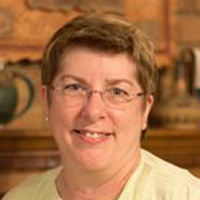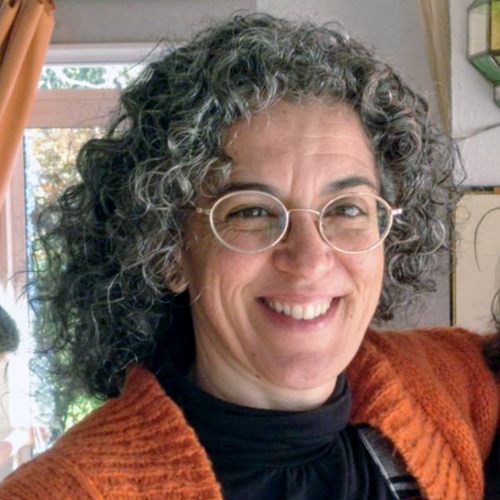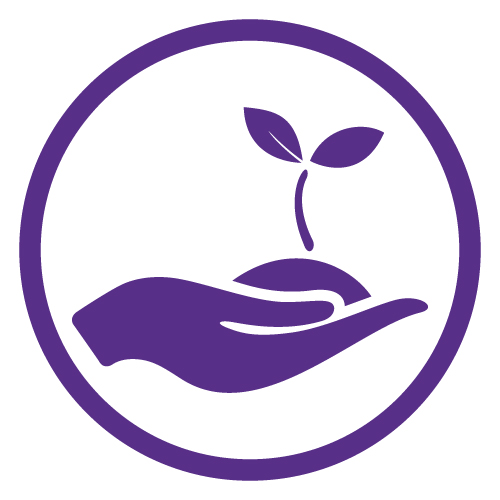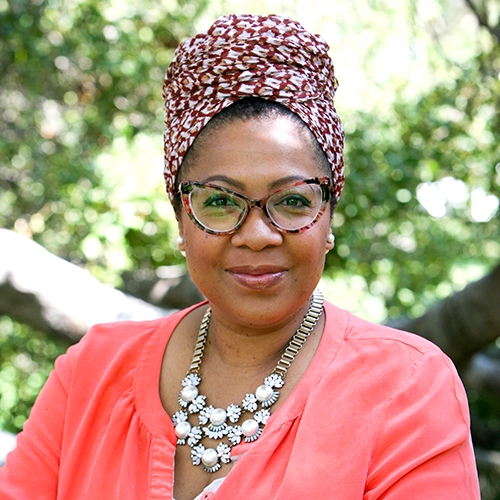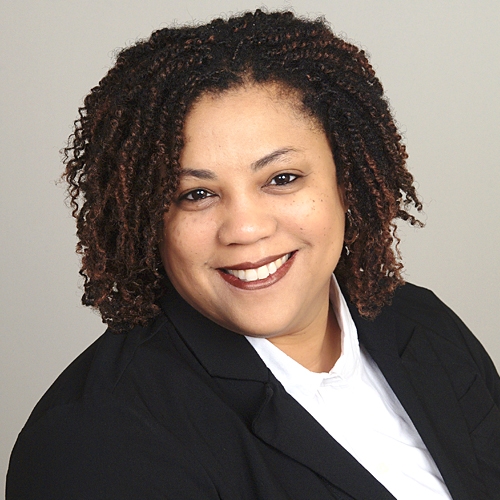 Lactation & Breastfeeding Online Course(s) & Continuing Education
Lactation & Breastfeeding Online Course(s) & Continuing Education
Access the latest clinical skills and research for Lactation & Breastfeeding for professional training. These Lactation & Breastfeeding online courses provide practice-changing skills and valuable perspectives from leading global experts. This Lactation & Breastfeeding education has been accredited for a variety of CEUs / CERPs and can be accessed on-demand, at your own pace.

Love Makes A Family: Supporting LGBTQIA+ and Gender Non-Conforming Families

Jeanette McCulloch, IBCLC, is the co-founder of BirthSwell, spreading birth (and breastfeeding and MCH) genius, changing policy, and building businesses and organizations using strategic digital communications. With more than 20 years experience in communications and women’s health advocacy, she provides consultation to local, statewide, national, and international birth and breastfeeding organizations and small businesses. She has published research and spoken at national conferences on reaching millennial parents online. She is passionate about health equity and ensuring that all families have access to high-quality, culturally sensitive birth and lactation care. Jeanette unplugs with her partner and two children while splashing around in the gorges of her hometown, Ithaca, NY.
As lactation professionals and supporters, we will encounter LGBTQIA+ and gender non-conforming families in health care settings, private visits and support groups. Deepen your knowledge of the unique needs of queer, trans and gender-non conforming parents during lactation. This session allows participants to explore our awareness, ask questions in a safe space and develop the tools to meet all families where they are.

View Details / Enroll

View Details / Enroll

Low Milk Production Detective Work: Assessment and Care Plan Considerations

Melissa Cole is a board-certified lactation consultant, neonatal oral-motor assessment professional and clinical herbalist in private practice. Melissa is passionate about providing comprehensive, holistic lactation support and improving the level of clinical lactation skills for health professional. She enjoys teaching, researching and writing about wellness and lactation-related topics. Her bachelor’s degree is in maternal/child health and lactation and her master’s degree is in therapeutic herbalism. Before pursuing her current path, Melissa’s background was in education and cultural arts, which has served her well in her work as a lactation consultant and healthcare educator. She loves living, working and playing in the beautiful Pacific Northwest with her 3 children.
Topic: Beyond Fenugreek: An Individualized Approach to Dietary and Herbal Galactagogues - [View Abstract]
Topic: Beyond the Basics of Latch: Support Strategies for Helping Babies when the Basics Aren’t Enough - [View Abstract]
Topic: Common Infant Digestive Health Concerns and Useful Support Strategies - [View Abstract]
Topic: Connection and Care: Virtual Support for Tongue-Tied Infants - [View Abstract]
Topic: Feeding is Movement: Activities for Supporting Optimal Infant Oral Function - [View Abstract]
Topic: Infant Gut Health: Common Concerns and Useful Support Strategies - [View Abstract]
Topic: Infant Oral Assessment: Exploring Anatomy and Function Beyond the Frenulum - [View Abstract]
Topic: Low Milk Production Detective Work: Assessment and Care Plan Considerations - [View Abstract]
Topic: New Thoughts on Infant Pre and Post-Frenotomy Care - [View Abstract]
Topic: Placenta Medicine as a Galactogogue: Tradition or Trend? - [View Abstract]
Topic: Thinking Critically About the Use of Clinical Lactation Tools - [View Abstract]
Topic: Will It Hurt? Frenotomy Aftercare Strategies to Optimize Healing Outcomes for the Newborn - [View Abstract]
Concerns about low milk production can be frustrating for parents and clinicians alike. There are many reasons milk production can be compromised. How can lactation and health professionals best assess the root causes of the production issue at hand and suggest targeted, sustainable ideas? This presentation will help clinicians think about the ‘detective work’ needed to help provide personalized care. Through interactive case studies, participants will critically-think about assessment and care plan strategies for the families in their care that are struggling with low milk production.

View Details / Enroll


Cathy Carothers is co-director of Every Mother, a non-profit organization providing lactation training for health professionals. An International Board Certified Lactation Consultant since 1996, she has provided more than 600 training events and conference presentations in every U.S. state/territory and several countries. She is past president of the International Lactation Consultant Association (ILCA), a fellow of ILCA, and past chair of the U.S. Breastfeeding Committee. She chairs the design team for the equity initiative in the lactation consultant profession, and chairs the Monetary Investment for Lactation Consultant Certification (MILCC), which works to reduce financial barriers to the IBCLC exam. She has directed several national breastfeeding promotion and support initiatives for the U.S. federal government, including the national USDA WIC peer counseling program, and national workplace support initiatives through the U.S. Department of Health and Human Services. She was honored with the 2014 National Leadership Award from the National WIC Association.
Topic: Dealing With the Tough Ones: Counseling in Difficult Situations - [View Abstract]
Topic: Making it Work: Supporting Nursing Moms at Work - [View Abstract]
There has to be an easier way! Many women returning to work after the birth of a baby find that the challenges are great…especially if they are breastfeeding, and the challenges range from lack of time and space to emotional and physical demands. The challenges are even greater for low-wage workers employed in more challenging, non-office settings, where private space options are much more difficult to identify, and where women often feel devalued and lack of confidence to speak up about their needs. For many women, discontinuing breastfeeding seems like the easiest “solution,” impacting maternal and infant health. This session will address the key issues of women returning to work, with workable solutions for supporting women with time and space for milk expression at work, and resources that can help.
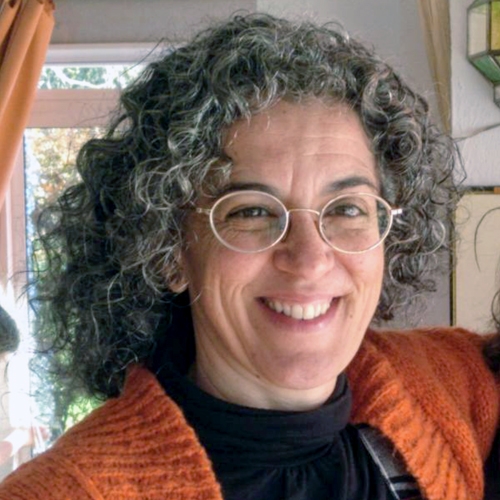

Carmela is a family medicine MD, bachelor´s degree in Public Health Education, and IBCLC since 2005. She is also a BFHI Evaluator and the co founder and past president of the Spanish Lactation Consultant Association (AECCLM). She works in a private Family Wellness Clinic, Raices, as person in charge of the lactation program, which includes two IBCLCs attending breastfeeding families and an extensive offer of breastfeeding training for health care professionals and breastfeeding peer counsellors. The team has trained over three thousand doctors, midwives and nurses from both the Spanish National Health Service and the private sector in Spain. She is a frequent lecturer at national conferences, and has also lectured internationally, both on-site and online. She is the author of several scientific papers on breast pain, mastitis and tongue tie. She is also the author of a breastfeeding/parenting book, “Amar con los Brazos Abiertos” (To Love with Open Arms). She is married to Carlos and they homeschool their four children.
Topic: Assessment and Management of Mastitis - [View Abstract]
Topic: Getting Milk Production off to a Good Start - [View Abstract]
Topic: Management of Chronic Breast Pain: Holistic Approach - [View Abstract]
When a breastfeeding mother consults because of chronic, deep breast pain, we feel weak at the knees. Often these mothers have been to several specialists and nothing has worked for them. Is it mastitis? Thrush? Referred pain from an inadequate latch? Emotional issues? Or is it all of the above, and even more? In this presentation we will learn to do an in-depth clinical history and to use an holistic model for a systematic management of chronic breast pain, so we can offer these mothers more efficient solutions – and better counselling.

View Details / Enroll
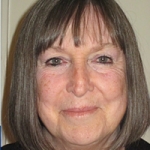

Pamela Morrison has worked with breastfeeding mothers and babies for 30 years. She served as a La Leche League Leader in Harare, Zimbabwe from 1987 before certifying as the first IBCLC in the country in 1990. She worked in private practice until 2003, before moving to Australia and then to England. She served for many years on the Zimbabwean National Breastfeeding Committee and on the BFHI Task Force. She has subsequently served as Co-coordinator of the WABA Task Forces on Infants Nutrition Rights and on Breastfeeding and HIV. Pamela continues to write and speak for the preservation and protection of breastfeeding in challenging situations.
In biological terms, successful breastfeeding demands that the baby survives and thrives on his mother’s milk. “Not-enough-milk” (either real or perceived) has long been recognized as the most common reason why mothers abandon breastfeeding. Ways to identify for the mother whether a baby is “getting enough” are discussed. The causes of inadequate breastmilk intake include physiological/anatomical conditions in mother/baby, poor lactation management or other more obscure causes. While planning interventions to enhance breastmilk production and improve infant intake, it is important to protect the baby’s nutritional status. Simultaneously implementing strategies to increase the mothers’ breastmilk supply while caring for a high-need baby can be immensely challenging. Each client will need constant support, reassurance and re-evaluation. Turning such a difficulty around, with the goal of eventually returning to exclusive breastfeeding, can be one of the most fulfilling and rewarding situations that an IBCLC can work with.
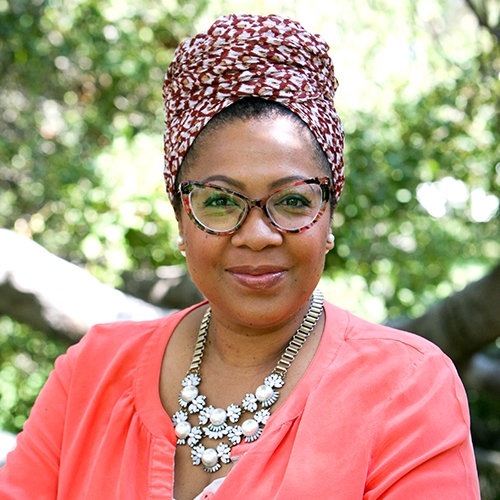

Nekisha Killings is an equity strategist, internationally board-certified lactation consultant, and maternal and child health advocate who speaks, teaches, and facilitates on topics related to equity and dismantling bias across various sectors.
When she is not home educating 4 future world changers, she acts as a Director of Equity, Inclusion and Belonging at Lactation Education Resources and consults organizations on creating and implementing strategies to better support marginalized communities.
Nekisha holds a Masters in Public Health and penned the chapter titled Cultural Humility in the latest Core Curriculum for Interdisciplinary Lactation Support text. Nekisha is on a mission to normalize brown breasts and nipples in health education, thereby better equipping healthcare providers to accurately assess and treat people of color.
Nekisha's work is rooted in a compassion and candor that could only have been cultivated in years of supporting new parents during their first days of parenthood. Nekisha is an active duty military spouse who has been awarded the Spouse of the Year designation for her volunteer efforts supporting families.
Topic: Breast Assessment and Non-White Skin Tones - [View Abstract]
Topic: BreastSide Manner: A Patient-Centered Approach to Lactation Support - [View Abstract]
Topic: Marching Orders: Developing Practical and Impactful Care Plans - [View Abstract]
What good is a successful patient consult if the follow-up instructions are not thorough or are too complicated to follow? In this talk, we’ll review best practices in Care Plans, and explore innovative approaches to developing plans. The goal is to increase patient compliance and the right Care Plan can be a powerful tool towards full compliance. We will discuss pitfalls of traditional plans, dos and don'ts in writing plans, and crafting plans that are culturally sensitive and realistic. We’ll also explore using to technology to create adaptable and adjustable plans.

Marijuana and Breastfeeding: A Second Look, A Better Approach

Sekeita Lewis-Johnson is a Registered Nurse and International Board-Certified Lactation Consultant (IBCLC). She earned her Bachelor of Science degree in Nursing from Michigan State University in 1997. Most of her career has been as a labor and delivery nurse, with almost 10 years of experience as a Lactation Consultant. She consults with clients in the hospital setting, as well, as outpatient settings. She is currently a Doctor of Nursing Practice candidate at Wayne State University. Passionate about breastfeeding and its health outcomes, Sekeita provides lactation services with an emphasis on exclusivity.
Sekeita recently received “The People’s Choice Award” from the Michigan Council of Nurse Practitioners for her Poster Presentation titled: Implicit Bias of Health Care Providers and Breastfeeding Disparities Amongst African American Women. Additionally, she was awarded “IBCLC of the Decade” by Black Mothers’ Breastfeeding Association. She participated in a Community Innovations Project for the Massachusetts Institute of Technology (MIT). She is currently the President of Black Mothers’ Breastfeeding Association.
Legalization of marijuana for medicinal and recreational purposes presents challenges for health care providers in maternal-child health. Inconsistent messaging regarding marijuana use and lactation management is creating alarm for patients and health care organizations alike. Oftentimes, policies and policing of marijuana use are filtered by biases. This webinar will explore current literature regarding marijuana use and breastfeeding, as well as, confusing and inconsistent messaging and policies regarding marijuana use while breastfeeding. Discussion will include recommendations for equitable care practices regarding this topic.

View Details / Enroll
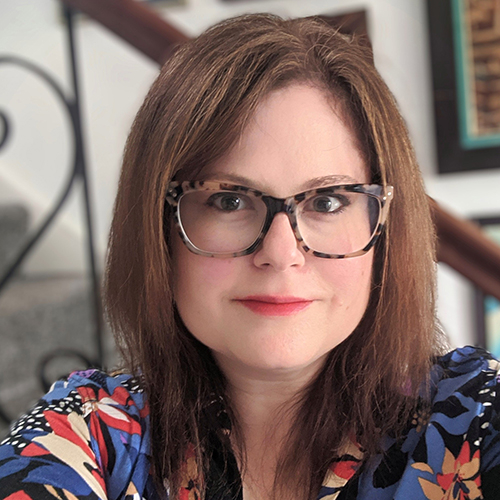

Tamara Drenttel Brand holds an MA in Near Eastern Studies from the University of Arizona and a Master’s in Public Health (MPH) from the American University of Beirut. She spent 10 years in the Middle East, where she worked as a public health practitioner, infant and maternal health consultant and an IBCLC. She has supported breastfeeding dyads from all over the world both in private practice and as a volunteer. In 2011, she founded and still actively facilitates “Mama 2 Mama Beirut Breastfeeding Support,” the largest breastfeeding peer support network in the Middle East (currently at 25k+ members). Additionally, she founded Galactablog, a professional group for lactation specialists and those aspiring-to-be (currently at 4.7k+ members) and has authored several articles for La Leche League’s monthly leader publications in both the Middle East and Ireland.
She is currently an international speaker on the topics dealing with breastfeeding in the Middle East, innovative lactation teaching strategies, working in resource-scarce settings, providing culturally sensitive lactation support, developing and implementing peer counselor training programs, mast cell disease and other related topics. Due to her own chronic health conditions, she has a special interest in educating others about mast cell disease and supporting those with chronic illnesses. She currently resides in a seaside village in Ireland with her family.
Topic: Contextualizing Breastfeeding in Lebanon - [View Abstract]
Topic: Lactation Education Outside the Box: Innovative Teaching Strategies to Engage Your Audience - [View Abstract]
Topic: Mast Cell Diseases and Lactation Care in the Post-Covid Era - [View Abstract]
Topic: Providing Culturally Sensitive Support for Breastfeeding Muslim Families - [View Abstract]
Topic: Reflections on a Breastfeeding Peer Counselor Program in Lebanon: Lessons Learned and Looking Forward - [View Abstract]
Mast cell diseases remain highly misunderstood and underdiagnosed conditions, even among medical professionals. Patients often take years to be diagnosed due to the range of symptoms and effects that such diseases can manifest. Recently, emerging evidence-based research has found links between mast cell disease(s) and Long COVID, theorizing that COVID-19 can exacerbate existing and undiagnosed mast cell diseases and that the SARS-CoV-2 virus itself could activate mast cell diseases. This raises the possibility that mast cell diseases will become more prevalent, requiring medical professionals, including lactation specialists, to be aware of their impacts and to provide the specialized care and support that such conditions require.
This presentation will provide participants with an overview of the different types of Mast Cell Diseases, symptoms, triggers and treatments. It will discuss associated chronic conditions and will highlight potential complications that such diseases can present for birth and breastfeeding. It will also provide resources to help participants determine lactation risk and compatibility with Mast Cell disease treatments and medications. Finally, this presentation will equip participants with the knowledge and practical tools to improve lactation support and care for clients with Mast Cell Disease.

View Details / Enroll

Maternal & Infant Assessment for Breastfeeding: Essential Concepts for Midwives

Barbara Wilson-Clay became a La Leche League Leader in 1982. She certified as an IBCLC and entered private practice in Austin, Texas in 1987. Barbara was named a Fellow of the International Lactation Consultant Association in 2008. She recently retired from her practice, which specialized in difficult breastfeeding situations. With a client load of 400-450 visits yearly, Barbara garnered a wealth of clinical and counseling experience and a trove of clinical teaching photos. In partnership with Kay Hoover, she created The Breastfeeding Atlas, which was translated into Chinese in 2019 by Fudan University Press. A Korean translation will be published in September 2020.
Barbara has been a citizen advocate for breastfeeding in the Texas legislature and helped pass a landmark law protecting breastfeeding rights. She is one of the co-founders of the non-profit Mothers Milk Bank at Austin, and retired as Vice President of the Board of Directors in 2010. She continues to serve on the Advisory Board. Barbara's research and commentaries have appeared in the Journal of Human Lactation, Archives of Disease in Childhood, the International Breastfeeding Journal, and others. She has served on various editorial review boards and contributed chapters to several lactation textbooks.
Topic: Looking Both Ways: Taking Wisdom from the Past Into the Future - [View Abstract]
Topic: Looking Closely at The Baby - [View Abstract]
Topic: Maternal & Infant Assessment for Breastfeeding: Essential Concepts for Midwives - [View Abstract]
Infants born at term following an uneventful birth generally require no breastfeeding interventions aside from a supportive environment. However, even in populations of women who are well-motivated to breastfeed, fully one third of infants demonstrate sub-optimal breastfeeding behavior in the first week postpartum. Risk factors have been identified that predict which mother-infant pairs may require extra assistance to protect the option to fully breastfeed once conditions stabilize. Careful assessment of the dyad helps identify who will need the most help. Such assessment is necessary to protect the infant from excessive weight loss and, because the calibration of milk supply is a time-sensitive event, serves to protect the potential for a full milk supply. Midwives must be familiar with new research that recommends that, in the presence of risk factors, milk expression should begin in the first hour after birth, with expressed colostrum being delivered to the infant by spoon or cup.
View Details / Enroll


Amy Holmes has practiced as a pharmacist for 21 years with the last 9 years being focused in neonatal critical care at Novant Health Forsyth Medical Center in Winston Salem, NC. She holds degrees in pharmacy from University of North Carolina (BS) as well as the University of Maryland at Baltimore (PharmD). Amy serves as the Residency Program Director for the acute care PGY1 program at Novant Health Forsyth Medical Center. She is active in state and national pharmacy organizations including the Pediatric Pharmacy Advocacy Group (PPAG) and the American Society of Health-System Pharmacists (ASHP).
Topic: Updates in Pharmacotherapy for NAS - [View Abstract]
Maternal milk offers many benefits to both mother and baby; however, breastfeeding is often stopped unnecessarily due to uncertainty or fear regarding potential safety issues with medication use in lactation. This presentation will provide information that will assist health care professionals in optimizing resources to make sound decisions regarding medication safety during lactation. There will be discussion on the pharmacologic properties associated with passage of medications into maternal milk including discussion of specific medication examples. We will discuss resources available that provide the most thorough and up to date information on medication use in lactation. Finally, we will discuss the use of galactogogues to augment breast milk production.




